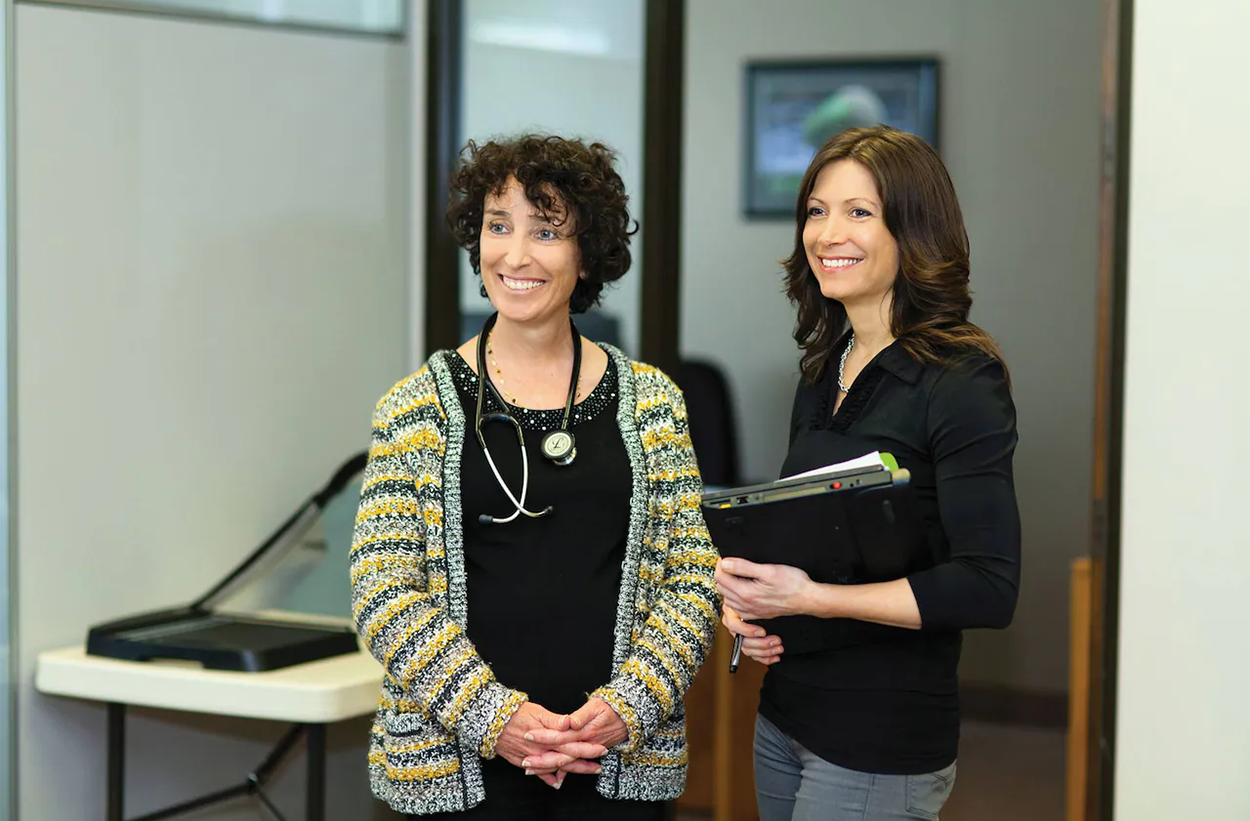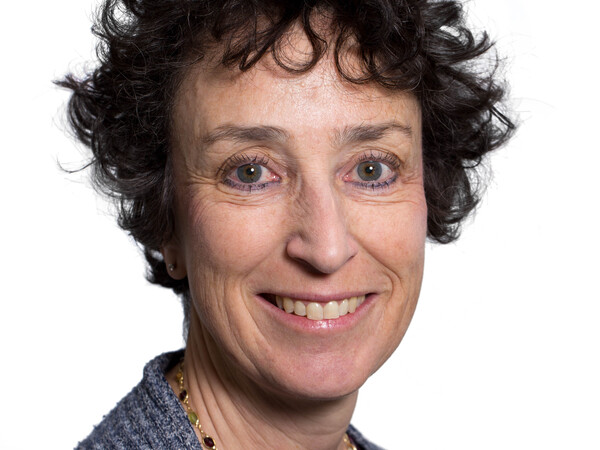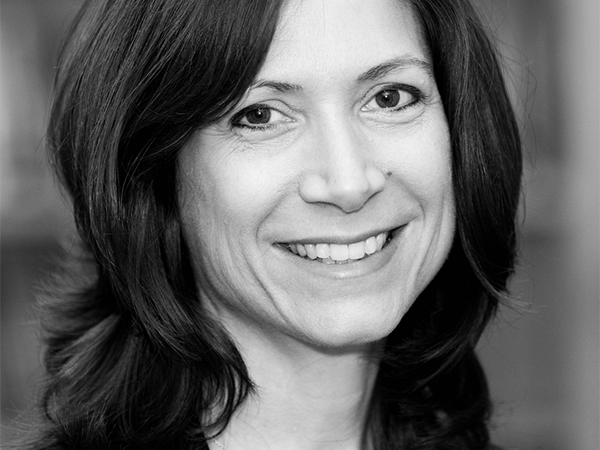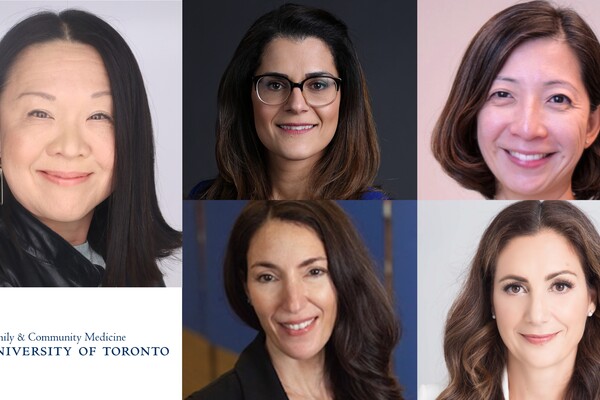Targeted poverty screening process by DFCM and NYGH researchers improves health equity in North York and beyond

Poverty—it’s easy to miss, especially when it’s not something you’re looking for. Although we have long known that those with lower income levels experience worse health outcomes, screening for poverty is not a routine part of health care. The result: One of the most significant factors affecting people’s health is simply not recorded or addressed.
Looking to change that, a research team based at North York General Hospital and the Department of Family & Community Medicine (DFCM) at the University of Toronto created new ways to use a validated tool for family doctors to screen their patients for poverty, conducted a study and published their results in a peer-reviewed paper in September 2021. The researchers worked collaboratively with the North York Family Health Team (NYFHT), as well as the University of Toronto Practice-Based Research Network (UTOPIAN), on implementation of the patient data.
“If our patients are living in poverty, it’s our job as family doctors to find out and know about it so we can help them,” says Dr. Kimberly Wintemute, an Assistant Professor at DFCM and the lead faculty member who first conceived the project and championed it. Wintemute was a family doctor at the NYFHT at the time, now at Michael Garron Hospital, Toronto East Health Network, part of the Southeast Toronto FHT.
The project used data managed by UTOPIAN to identify patients living in low-income neighborhoods by postal code and Statistics Canada census information, and enrich electronic medical records (EMRs).
“Chart alerts were added for participating physicians, providing valuable patient information that is not otherwise readily available. We made it easier for family doctors to gauge their patients’ economic needs—something that is not always apparent in practice,” says Wintemute.
During a visit, doctors see the alert and can open a conversation with the patient and use an evidence-based tool to assess for poverty. Then, if needed, doctors could offer referrals to NYFHT case workers who provide supports to improve patients’ well-being, including tax-filing assistance and income optimization.
“There are hidden pockets of poverty in our North York community—they are invisible. People slip through the cracks. Especially in our population where most are privileged, highly serviced and middle class or above, it’s easy to lose perspective and overlook the patients who have different needs,” says Wintemute.
During the six-month timeframe, researchers found participating physicians screened 25% of eligible patients, an improvement on routine settings in primary care: A recent study found only 9% of patients were screened. In the North York community during the study, 20% of targeted patients were positive for poverty and about half were referred to a case worker to receive support.
The study is one of the first projects to incorporate neighborhood-level data into EMRs in community primary care settings, and was funded through a Patient’s Medical Home Caring and Compassion Grant from the College of Family Physicians of Canada.

Dr. Michelle Greiver, UTOPIAN’s Director at DFCM & NYGH’s Research Chair

Dr. Kimberly Wintemute, DFCM Assistant Professor
Spotlight on equitable research at NYGH
To set up the research aspects, Wintemute and her team collaborated with Dr. Michelle Greiver and her team at UTOPIAN. Greiver leads UTOPIAN as NYGH’s UTOPIAN Gordon F. Cheesbrough Research Chair in Family & Community Medicine and also UTOPIAN’s Director at DFCM.
NYGH, one of DFCM's teaching sites, excels in applied community-based research, which contributes to its standing as one of the top hospitals in the world and Canada. Leveraging connections with family practices through DFCM and U of T, NYGH has a leading role in research as a “living laboratory.” NYGH is a key UTOPIAN partner and stakeholder: The hospital has one of the largest databases of patient data in Canada through its UTOPIAN partnership, and hosts a unique integrated hospital-primary care dataset for research, the NYGH Health Databank Collaborative.
“NYGH is an ideal place for our project: It’s both a community and academic hospital, so its research is relevant to many hundreds of persons seen as part of routine care in family practices. The benefits and applications extend much beyond North York,” says Greiver.
The research team says their project was forward-thinking and part of the “culture change” in health care to improve equity. “Our project reflected action beyond what was then considered a traditional biomedical model. Equity principles were not yet as prominent: Our survey found there are multiple barriers to screening for family doctors. The project provides practical ways to screen and recognizes the importance of equity screening,” Greiver says.
More attention is now being given to equity, diversity, inclusion, Indigeneity and accessibility (EDIIA), particularly since COVID-19 and other events have exposed many inequities. “EDIIA is now a priority for U of T’s DFCM and NYGH, thanks to determined leadership at the hospital and the university,” says Greiver.
Dr. David Eisen, NYGH’s Chief of Family and Community Medicine and Program Medical Director, an Associate Professor at DFCM, and a practicing family doctor, says the impact of EDIIA improvements can be felt locally and beyond. “The importance and value of addressing social determinants of health, such as poverty, cannot be overstated. Currently at NYGH, we are striving towards achieving greater equity in several areas. By connecting social and health needs, our physicians can treat patients more holistically and help improve their well-being, especially the most vulnerable and marginalized in our communities.”
UTOPIAN, a rich research resource for future projects
Wintemute hopes their poverty screening tool will continue to help patients at NYGH and across the province and country, since poverty tends to be inter-generational. “Poverty begets poverty: Children who grow up in poverty are highly likely to remain poor as adults,” she says.
Wintemute’s research is one step towards raising awareness of and making improvements in poverty screening. She is working on further breaking down the barriers that family doctors face. “We need to make addressing social determinants of health, including poverty, a bigger priority in health care,” she says. One way is to create easy processes and tools for busy clinicians.
The poverty screening project leveraged DFCM’s UTOPIAN team as a rich resource for data and research methodologies, but there are more possibilities on the horizon. The UTOPIAN team can support every aspect of research, including data measurement, research ethics board principles, measuring outcomes, presentations and peer-reviewed publications.
“There is untapped potential to maximize use of UTOPIAN EMR data at NYGH and its surrounding community to examine real-time questions on health conditions, health services experience, health system performance and patient outcomes,” says Greiver. “This has opened the door for more UTOPIAN research collaborations.”
News



